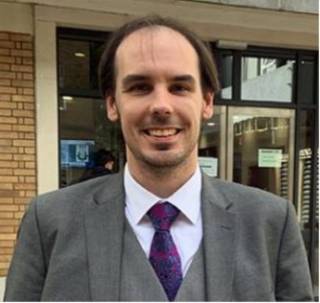This group has focused on Antiphospholipid Syndrome and Systemic Lupus Erythematosus, studying these diseases using a novel, inter-disciplinary approach at UCL Biochemical Engineering

Research
Molecular Studies of Beta-2-Glycoprotein I
Beta-2-Glycoprotein I is the main autoantigen of Antiphospholipid Syndrome (APS). It has a number of different roles in the body, from complement and coagulation regulation to scavenging LPS and even a proposed role in melanoma metastasis. Despite these roles, relatively little is known about this structure. This project has been funded by both APS Support UK and a Fellowship from the Medical Research Foundation. It has highlighted a number of interesting findings which have been published and presented internationally. It is still ongoing and through the application of complex methods, we aim to get a better understanding of why APS patients develop autoantibodies to B2GPI and how that process could be influenced therapeutically.
Autoantibody Identification
The McDonnell Lab has been developing novel methods of autoantibody detection for a number of years. Most recently, a methodology for the identification, purification and quantification of novel autoantibodies in various disease settings has been established. This has led to the detection of several novel autoantibodies in a number of diseases for which publications are in process. We are keen to translate our methods to a wider range of diseases by fostering further national and international collaborations.
Chronic Histiocytic Intervillositis
This is the PhD project of Dr Cornish. Chronic Histiocytic Intervillositis (CHI) is a rare placental disorder which leads to recurrent miscarriage. The aetiology is currently unknown, although it is believed to be an immune response to pregnancy. Dr Cornish’s project focuses on finally understanding what it is that drives this condition and how we can best combat it for the good of patients. This project is Co-Supervised by Prof. David Williams in the Institute of Women’s Health.
Study of Serine Proteases
In collaboration with Prof. Giles in the Division of Medicine, the McDonnell laboratory has undertaken significant studies looking into the structural implications of anti-serine protease autoantibodies. Antibodies to both Factor Xa and Thrombin (aFXa and aThr) are positive in up to 40% of APS and SLE patients. The clinical value of these autoantibodies is unknown, as is the potential pathogenic mechanism. The McDonnell laboratory has purified these antibodies and developed a number of different methods to test their activity and potential for structural change. These results been presented internationally at the ACR in America and BSR in the UK and are currently undergoing preparation for publication.
Awards
Dr McDonnell has been awarded a prestigious Senior Fellowship from Versus Arthritis. This fellowship will allow him to establish his group between UCL Biochemical Engineering and the UCL Division of Medicine. The funding (£700,000) is based around the identification of novel autoantigens in Rheumatoid Arthritis. Approximately 30% of RA patients are termed “seronegative” meaning they don’t have the classical antibodies which allow us to diagnose RA quickly and accurately. These patients can have a delay of years in their diagnosis, as such their treatments can be delayed and they an suffer worse disease in the meantime. Dr McDonnell has developed a novel method for finding new antibodies in these kinds of patients and he is hoping to discover new antibodies which will allow us to diagnose these patients earlier in the future and optimise their treatment as a result. This builds on Dr McDonnell’s previous work with antigenic proteins and autoimmune disorders and represents a real step forward in the attempts to improve RA diagnosis and patient stratification.
Garrod Prize
Dr McDonnell has been awarded the Garrod Prize by the British Society of Rheumatology. This prize is given to a scientist with outstanding achievements in the field, Dr McDonnell’s application was based around his history in developing a novel therapeutic to APS (Domain I) and his groundbreaking work on understanding the structure and function of the main autoantigen in APS: Beta-2-Glycoprotein I. Dr McDonnell received his prize at the 2023 BSR in Manchester where he also delivered his acceptance speech.
MRF Prize
- Thomas McDonnell wins Medical Research Foundation Emerging Leaders Prize - UCL News
- Medical Research Foundation Emerging Prize announcement
Dr McDonnell has used this to attend a number of leadership courses and purchase new equipment including an OT-2 Liquid Handler developing a 96 well-automated format for ELISAs and other manual methods.
- Media Contact: Jack.Stonebridge@medicalresearchfoundation.org.uk
- Dr Thomas McDonnell's UCL Research profile
 Close
Close


